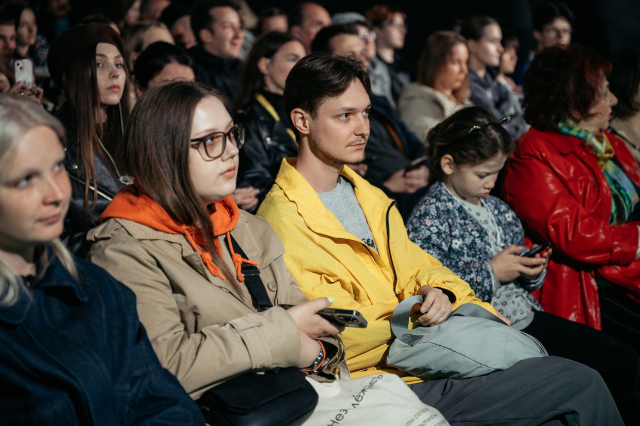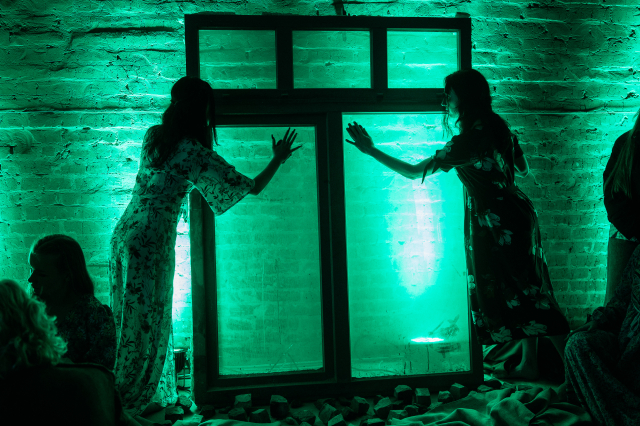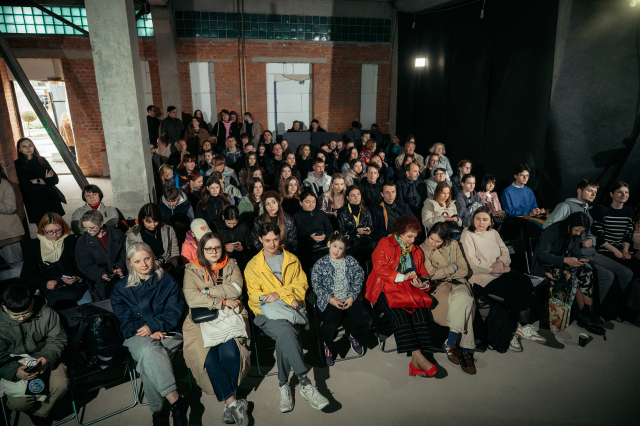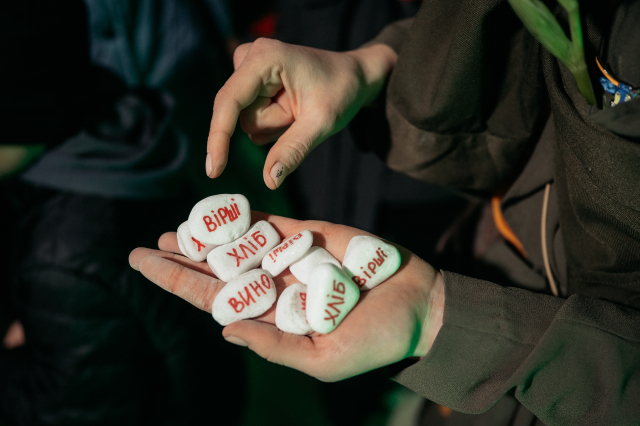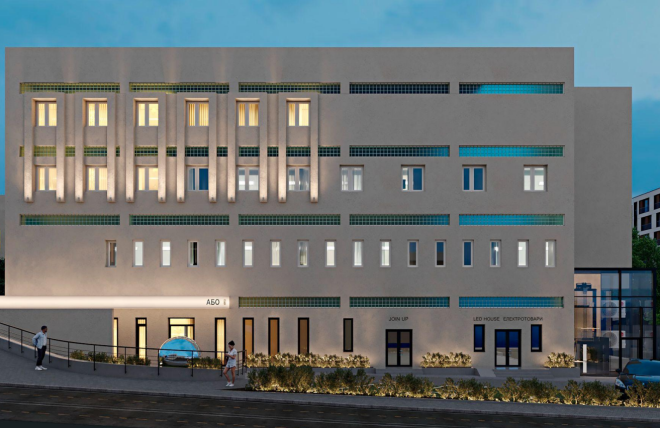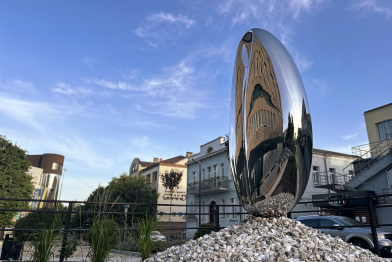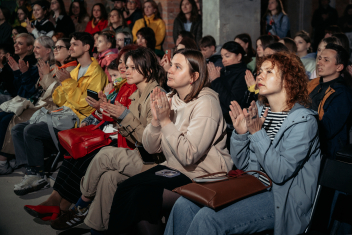
On May 14, an unprecedented event took place in Lutsk: the "Abo Abo" center for the development of creative industries hosted a poetry reading focused on the interconnection between humanity and the environment
The Ukrainian environment suffers from the consequences of war. The severely disrupted integrity of the land directly impacts a person's well-being, peace, and capacity to recover quickly in stressful situations.
Meanwhile, on the other side of the world, Canadian poet of Ukrainian origin Adam Dickinson explores changes within the human body's microflora through scientific experiments. What happens to a person, their tissues, molecules, blood, thoughts, and heartbeat when they interact with various products of human activity? His poetry grows from science.
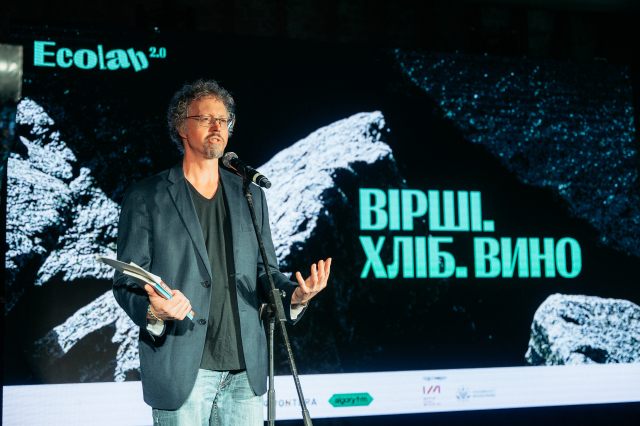
However, he also reflects on the destructive impact of war, as it was, for instance, in Vietnam, where the amount of chemicals led to an ecological catastrophe. This gave rise to global concepts like "ecocide" and "Vietnam syndrome." Adam brought poems about these very topics to Lutsk.
Similarly, for Polish poet Julia Fiedorczuk, the interaction between humanity and the surrounding world lies on a philosophical plane of existence. Her texts explore changes within people, sometimes as an inevitable process, and other times as complex transformational journeys.
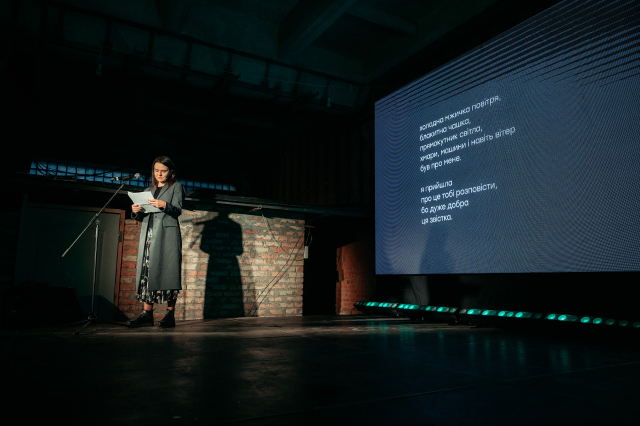
Both poets participated in the "Poems. Bread. Wine" poetry performance, which was part of EcoLab 2.0. This event, held on May 14-15 in Lutsk, was the only public component of the professional intensive.
Foreign poets read their poetry in their native languages: Polish and English.
The poems of modern Ukrainian poets, on the other hand, were presented through a performative act and dance by the independent theater "Harmyder" and the Castle dance studio. Ruslana Porytska directed the performance.
Poems by Maksym Kryvtsov, who died at the front, and Victoria Amelina, who was killed by a russian missile, were recited.
Also included were poems by modern poets Yulia Musakovska, Ostap Slyvynskyi, Kateryna Mikhalitsyna, Oleh Kadanov, and Artur Dron.
… The stage, a large screen, and semi-darkness. Though still being revitalized, the "Abo Abo" venue was already capable of safely hiding the audience from the May rain.
"Soon, the "Abo Abo" space will open its doors for daily interaction," emphasized Ella Yatsuta, founder of the Frontera literary platform and head of the Algorithm of Actions platform, in her welcoming remarks.
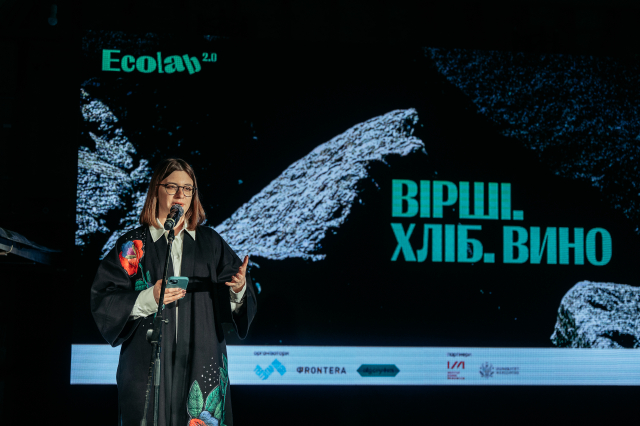
But for now, she explained, this space is dedicated to people. Some are willing to experience art in an unfinished building, while others clear away construction dust for their visit. The third group creates important joint projects, just as Frontera, Algorithm of Actions platform, and Harmyder did, uniting around a common idea.
This idea - professional program EcoLab 2.0, organized by "Frontera" for cultural and art figures and aimed at the reinterpretation of the interaction between humans and the environment — also provided the impetus for the creation of the performance "Poems. Bread. Wine." It brought words, voices, and actions to life...
The acts, where people and stones were present, symbolize what is inherent within us: the burden of difficult experience, silent memory, and the feeling of loss.
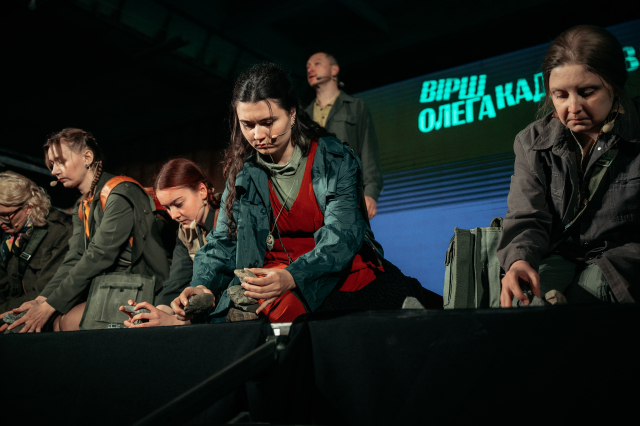
But at the same time, it's also material from which to build. Yes, memories can be like stones: heavy, resilient. Yet we can also transform them into small pebbles – dropping them into fragile, transparent vessels with a clear, beautiful sound, decorating them with flowers, or arranging them like a childhood mosaic. Even around soldiers' helmets, where we can allow ourselves to plant violets. Because Ukrainians are those who, in terrible times, find salvation in beauty. They dance when it hurts. They wear colorful dresses when darkness presses with particular force.
"It was incredible. I'm touched and thrilled by how everything came together: the music, the actors' performance, the poetry, the dance. Being here, in Ukraine, after visiting this place many years ago, feeling that half my blood is from here because my family originated here – this is about being proud of that connection. And, perhaps, coming here has only strengthened that feeling. It's an honor for me to be part of everything here,"
The EcoLab 2.0 project was implemented by the Frontera literary platform with the support of the British Council in Ukraine, the Adam Mickiewicz Institute, the Environmental Humanities Center of the University of Warsaw, the Catalan PEN Centre, and the Algorithm of Actions platform.
